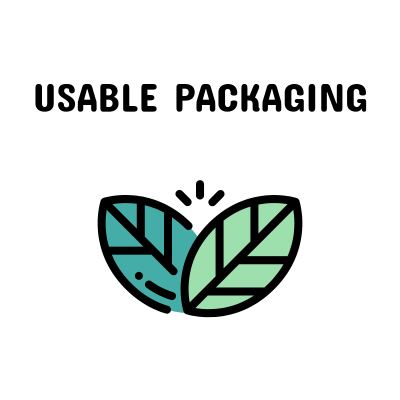‘Developing environmentally friendly alternatives to plastic packaging has become critical when we witness the huge damage that plastic pollution causes to wildlife and nature,’ said José Maria Lagarón of the Spanish Council for Scientific Research, the organisation leading the USABLE PACKAGING project composed of 25 businesses, universities, research centres, trade associations and other organisations from across Europe.
The project's core objective was to dramatically reduce the use of fossil fuel-based packaging by manufacturing bio-based packaging alternatives.
Developing environmentally friendly alternatives to plastic packaging has become critical when we witness the huge damage that plastic pollution causes to wildlife and nature.
José Maria Lagarón, USABLE PACKAGING project coordinator
High-performance packaging
As raw material for the packaging, USABLE PACKAGING used food processing industry by-products and sidestreams, such as residues from pasta and bread production, as well as municipal waste.
The project adapted existing state-of-the-art packaging processing technology to create building block materials. The biochemical processing methods used for this purpose have a low environmental impact and allow the chemical and physical properties of the materials to be modified in line with their intended application.
It was then possible to use the materials to formulate complex packaging structures, like laminates and multilayer films. The characteristics of these structures range from rigid to semi rigid and flexible. The structures match the performance of commercial petrochemical-based plastics in terms of protection of their content against gases, liquids, bacteria, mechanical force or extreme temperatures.
The frozen bag prototypes showed strong antimicrobial properties against typical foodborne pathogens and a good balance between mechanical and barrier properties.
José Maria Lagarón, USABLE PACKAGING project coordinator
A set of packaging items was also created. The items are destined for sectors including food and drink, pharmaceuticals and clothing. Among the products developed are compostable drinking straws and cutlery, biodegradable bags for frozen food, recyclable trays for vials and syringes, and reusable plates.
‘The frozen bag prototypes showed strong antimicrobial properties against typical foodborne pathogens and a good balance between mechanical and barrier properties, proving their effectiveness at reducing and controlling the growth of foodborne bacteria,’ added Professor Lagarón.
End-of-life solutions
USABLE PACKAGING creates a circular and sustainable value chain. Unlike petrochemical-based plastics, it offers a solution for the disposal of materials that does not impact the environment.
The project offers a fully circular value chain by using food processing waste as the base ingredient to manufacture this material that is then recycled into new feedstock for the next production cycle.
José Maria Lagarón, USABLE PACKAGING project coordinator
At the end of their life, the materials biodegrade for use in compost or can be recycled. Organic recycling through anaerobic digestion generates biogas while recycling based on biotechnological processes generates new feedstock. Both the biogas and the feedstock can be used to make new packaging materials, which further reduces the impact of plastic waste on the environment and delivers additional economic value.
‘The project offers a fully circular value chain by using food processing waste as the base ingredient to manufacture this material that is then recycled into new feedstock for the next production cycle,’ explained Professor Lagarón.
Through this value chain, new connections have been fostered between the bio-based plastics and food processing industries that will lead to further developments tackling the environmental impact caused by plastic packaging.

